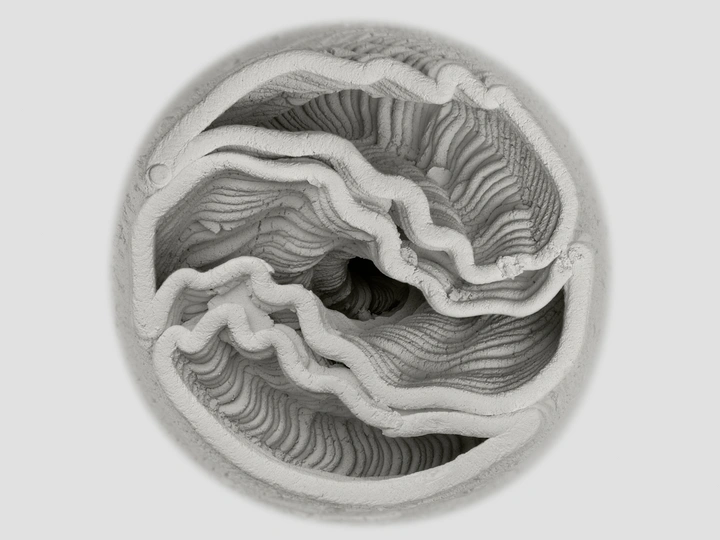Dodola

Pia Groleger
Luka Pleskovič
Pjorkkala is a design collective based in Ljubljana, Slovenia.
Founded in 2021, by the collective's core members, Žan Girandon, Pia Groleger, and Luka Pleskovič, that bring wide backgrounds branching from industrial design, specializing in areas such as UX design, interior design, project management, and product design. Pjorkkala has been recognised through awards, including the Project Excellence Award by Distributed Design, the Zagreb Design Week Award, Made in Slovenia Selection of Design Excellence and Big See Award. Driven by a commitment to sustainability and experimentation, Pjorkkala's creativity revolves around the exploration of ceramic materials and the fusion of modern technology with traditional knowledge. Their work reflects a thoughtful consideration of the societal and environmental impacts of design. Pjorkkala stands at the forefront of design innovation, continually pushing boundaries and redefining the possibilities of their craft.
The project is an outcome of the open call for the Production Platform of the Design Biennale 27 (BIO27) in 2022 with the theme Supervernacular - design for a regenerative future. The authors responded to the call for Water - the design of biovernacular, as in their opinion it was the most suitable for design approaches and offered various options for answers within the framework of product and sustainable design.The final product, Dodola, is an installation of intricately shaped filtration modules which purify water of contaminants as small as bacteria. It’s made of clay, mixed with organic material and fired in a way which increases its porosity. It is many times more efficient than already available ceramic filters because of the used technologies and principles such as the gyroid structure and Archimedes screw. The filtration system is self-operating and doesn’t need constant maintenance. The objects are mostly submerged underwater where the porous structure filters water as it passes through the material. Because of the river’s flow, the objects rotate, and by doing so transport the water towards the upper part of the module, where it leaves the system to be used as potable water. By using the flow of water to power the rotation of the filters, the device can be installed even in remote areas where there are no power connections.